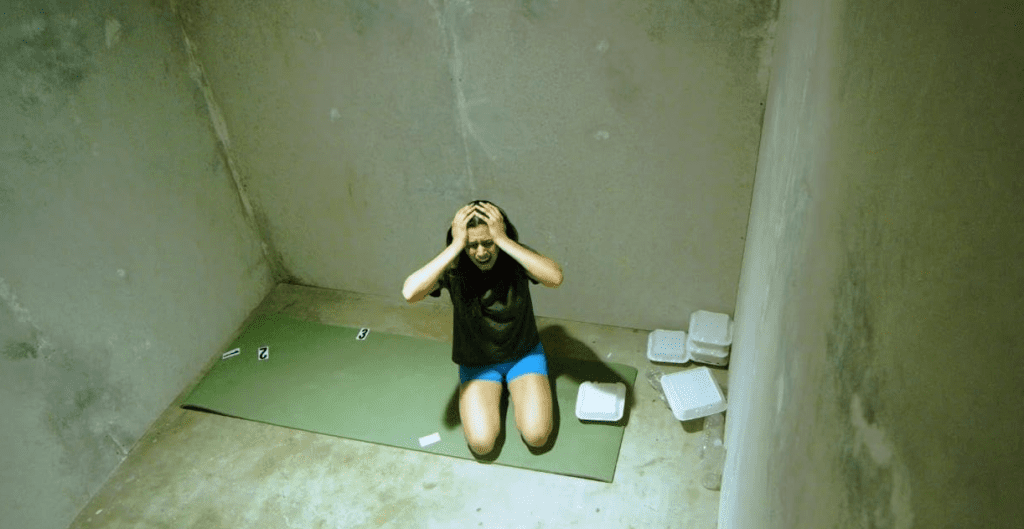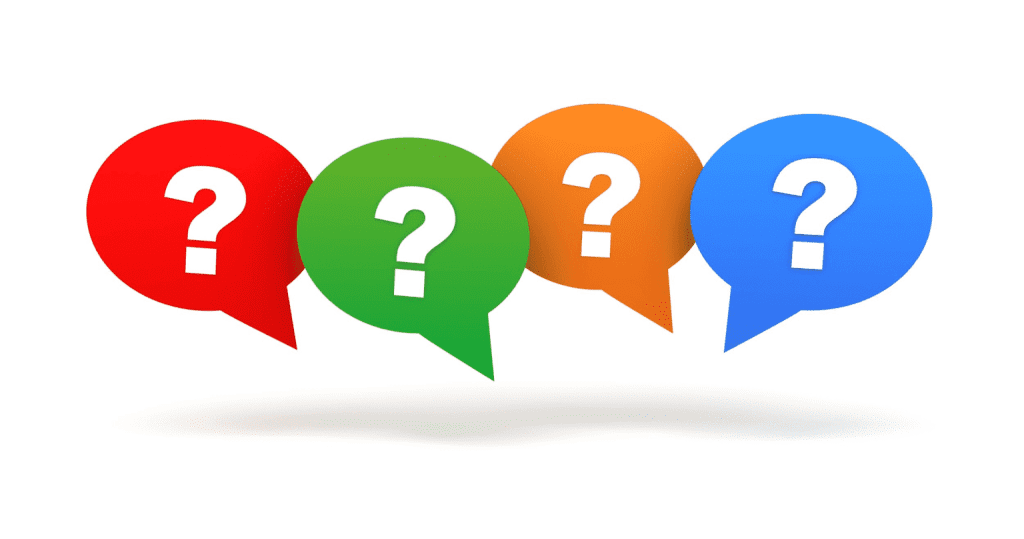In today’s fast-paced, tech-driven world, it’s easy to get caught up in the endless scroll of our smartphone screens, constantly consuming content without truly engaging our minds. However, the art of riddle-solving offers a refreshing respite from the digital monotony, challenging us to think outside the box and exercise our cognitive muscles.

As the saying goes, “A mind stretched by a new experience can never go back to its old dimensions.” And what better way to stretch your mind than by tackling a collection of thought-provoking, mind-bending riddles? In this article, we’ve curated 20 of the trickiest, most perplexing riddles that will have you scratching your head and wondering, “How on earth did they come up with that?”
From logical conundrums to linguistic puzzles, these riddles are designed to push the boundaries of your problem-solving skills. So, sharpen your wits, flex your mental muscles, and get ready to embark on a journey of intellectual discovery. Let’s dive in!
1. The Cement Room Riddle: Escape the Unescapable
Riddle: If you are stuck in a cement room with no means of escape, except a table and a mirror, how will you escape?

Answer: “You look in the mirror and see what you saw, take the saw, and cut the table in half. Two halves make a hole- jump through the hole and you’re out.”
This riddle challenges our assumptions and forces us to think creatively. The key is to look beyond the obvious and see the hidden potential in the seemingly mundane objects around us.
2. A Tricky Riddle for the Tricky People
Riddle: What can you sleep on, sit on, and even brush your teeth with?
Answer: Well, it is just a bed, a chair, and a toothbrush, isn’t it?
This riddle plays on our familiarity with everyday objects, cleverly disguising the simple solution within the complexity of the question. It’s a testament to the power of perception and the importance of looking at things from a fresh perspective.
3. A War of the Words
Riddle: “What always has four letters, sometimes has nine letters, but never has five letters?”
Answer: If you look carefully, this riddle is an observation, rather than a question. Hence, it has no answer.
This riddle is a linguistic trap, challenging us to think beyond the literal interpretation of the question. It’s a reminder that sometimes, the answer to a riddle may not be as straightforward as it seems.
4. Eternal Beginnings
Riddle: “I am the beginning of eternity and the end of time and space. The start of every end and the end of every place. What am I?”
Answer: This is quite simple- for it is the letter E.
This riddle plays with the concept of language and the significance of a single letter. It’s a testament to the power of words and the way they can be manipulated to create truly mind-bending puzzles.
5. Breakfast at Riddles
Riddle: “It’s 7 am. You are asleep and there is a sudden knock on the door. Behind the door are your parents, who came to have breakfast. In your fridge: bread, milk, juice, and a jar of jam. To answer, what will you open first?”
Answer: Since you are still asleep- you will be opening your eyes first.
This riddle takes a seemingly straightforward scenario and twists it, forcing us to think beyond the obvious. It’s a reminder that sometimes, the best answers are the ones that challenge our assumptions and force us to think in unconventional ways.
6. No Mouth, And Yet Words Flow
Riddle: “I speak without a mouth and hear without ears. I have no body, but I come alive with the wind. What am I?”

Answer: Speak into a ravine, and it would be the echo you listen to.
This riddle is a poetic exploration of the power of sound and the way it can be manipulated to create something entirely new. It’s a testament to the creativity and imagination of the human mind.
7. Men In Masks
Riddle: “A man leaves home on foot one evening, makes three left turns and arrives back home to find two masked men waiting there. Who are they?”
Answer: Time for MLB fans to shine- for the masked men are the umpire and the catcher.
This riddle is a classic case of misdirection, leading us down a path of false assumptions before revealing the unexpected solution. It’s a reminder that sometimes, the answer is right in front of us, but we’re too busy looking for the unexpected to see it.
8. Cabin in the Woods?
Riddle: “There is a cabin in the woods. There are no footprints around the cabin. There are seven people inside that are all dead. They all died at the same time. There is no one else in the cabin. How did the people die?”
Answer: This is an airplane cabin- which crashed, unfortunately.
This riddle is a puzzle of logic and reasoning, challenging us to think critically about the information provided and draw the right conclusions. It’s a testament to the power of deductive reasoning and the importance of not making assumptions.
9. No Siblings
Riddle: “A man in prison has a visitor. Afterward, a guard asks the inmate who the visitor was to him. The inmate replies: “Brothers and sisters I have none, but that man’s father is my father’s son.” Who was the visitor to the inmate?”
Answer: It was his son who came to meet.
This riddle is a linguistic puzzle, using the interplay of familial relationships to create a conundrum that requires careful analysis and a deep understanding of language. It’s a reminder that sometimes, the answer to a riddle lies in the subtle nuances of the words themselves.
10. Row, Row, Row Your Boat
Riddle: “Four men were fishing in a boat on the lake. The boat turned over and all four men sank to the bottom of the lake. And yet, not one single man got wet. How can this be?”
Answer: None of them were bachelors, so no single men were harmed.
This riddle is a playful twist on a common scenario, using wordplay and logical reasoning to create a puzzle that challenges our assumptions. It’s a testament to the creativity and ingenuity of the human mind.
11. Bat and Ball
Riddle: “A bat and a ball cost $1.10 in total. The bat costs $1 more than the ball. How much does the ball cost?”

Answer: Just a meager 5 cents.
This riddle is a classic mathematical puzzle, requiring us to think critically about the relationships between the different elements of the problem. It’s a reminder that sometimes, the answer to a riddle can be found through careful calculation and logical reasoning.
12. The Man Who Has It All
Riddle: “The man who made it sold it.
The man who bought it did not use it.
The man who used it did not know it.
What is it?”
Answer: Sadly, it is a coffin.
This riddle is a poignant exploration of the human condition, using a simple object to explore the complexities of life and death. It’s a reminder that sometimes, the answer to a riddle can be deeply profound and thought-provoking.
13. Box Of Treasures
Riddle: “A box without hinges, key, or lid, yet golden treasure inside is hidden. What is it?”
Answer: It is an egg.
This riddle is a delightful play on words, using the concept of a “box” to refer to something that is not a box at all. It’s a testament to the power of language and the way it can be manipulated to create truly unexpected and delightful puzzles.
14. Thirteen Hearts Why?
Riddle: “What has 13 hearts but no other organs?”
Answer: A deck of playing cards
This riddle is a clever twist on the familiar concept of a deck of cards, using the idea of “hearts” to create a puzzle that challenges our assumptions about the nature of playing cards. It’s a reminder that sometimes, the answer to a riddle can be found in the most unexpected places.
15. The Vanishing Door?
Riddle: “When is a door not a door?”
Answer: When it is ajar.
This riddle is a classic pun-based puzzle, using the homonymic quality of the word “ajar” to create a deceptively simple riddle that nonetheless requires a bit of linguistic dexterity to solve. It’s a testament to the power of language and the way it can be manipulated to create truly delightful and unexpected puzzles.
16. Railroad Dilemma
Riddle: “Railroad crossing, look out for the cars. Can you spell that, without any R’s?”

Answer: It is quite simple- T H A T.
This riddle is a playful exploration of the English language, using the concept of a “railroad crossing” to create a puzzle that challenges our assumptions about the relationship between words and their component letters. It’s a reminder that sometimes, the answer to a riddle can be found in the most unexpected places.
17. It’s Cowboy Time!
Riddle: “A cowboy rides into town on Friday, stays for three days and leaves on Friday. How did he do it?”
Answer: In a similar vein to Robinson Crusoe, he named his horse Friday.
This riddle is a clever twist on a familiar scenario, using the concept of a cowboy and the days of the week to create a puzzle that challenges our assumptions about the passage of time. It’s a testament to the creativity and ingenuity of the human mind.
18. “I am NOT Your Father, Luke!”
Riddle: “I am your father, but you are not my son. Who are you to me?”
Answer: You are my daughter.
This riddle is a classic exploration of familial relationships, using the interplay of gender and kinship to create a puzzle that requires a deep understanding of language and social dynamics. It’s a reminder that sometimes, the answer to a riddle can be found in the most unexpected places.
19. Is This The Last Place You Looked?
Riddle: “How is it possible to always find what you’re looking for in the last place you look?”
Answer: If you find what you are looking for, then you would stop looking, so it would be in the last place you looked.
This riddle is a clever play on the concept of “looking for something,” using the idea of “the last place you look” to create a paradox that challenges our assumptions about the nature of searching and finding. It’s a testament to the power of logical reasoning and the way it can be used to create truly mind-bending puzzles.
20. The American Doctor
Riddle: “A man and his son are in a terrible accident and are rushed to the hospital in critical care. The doctor looks at the boy and exclaims ‘I can’t operate on this boy, he’s my son!’ How could this be?”
Answer: The boy’s mother is the operating doctor.
This riddle is a classic exploration of gender roles and assumptions, using the concept of a doctor and a patient to create a puzzle that challenges our preconceptions about the relationships between people. It’s a reminder that sometimes, the answer to a riddle can be found in the most unexpected places.
In conclusion, these 20 tricky riddles have demonstrated the incredible power of the human mind to create puzzles that challenge our perceptions, assumptions, and problem-solving abilities. From logical conundrums to linguistic traps, these riddles have pushed us to think outside the box and stretch our cognitive muscles in ways we may have never imagined.
As we continue to navigate the fast-paced, technology-driven world of today, it’s crucial that we take the time to engage in activities that stimulate our minds and keep us mentally sharp. Riddle-solving is a timeless, engaging, and deeply satisfying pursuit that can help us do just that.
So, the next time you find yourself feeling mentally stagnant, why not try your hand at a few of these brain-teasers? Who knows – you might just surprise yourself with the depths of your problem-solving abilities. Happy riddle-solving!





